Religious Studies
Religious Studies at Detroit Mercy
Religions are at the core of cultures, and the study of religions is integral to the understanding of any human society. Knowledge of religious thoughts and practices is an exciting and useful complement to virtually any course of study or career path.
Steeped in the Jesuit and Mercy traditions, the Department of Religious Studies aims to provide students with the tools to understand the richness and power of religious traditions, as well as the role of those traditions in the human enterprise, with special emphasis on social justice and religious and cultural others.
Given the multi-traditional scope and nature of religious studies, students can expect to explore many different religions and study the profound impact which they have on philosophies, ethics, social structure, individual identities, community formations, economics, politics and material cultures. At the same time, students will enjoy flexibility in focusing on one or more religious traditions and utilize multiple disciplinary approaches.
Religious Studies Programs

Bachelor of Arts Degree
The Bachelor of Arts with a major in Religious Studies explores a variety of religions from a scholarly perspective. Students will gain a new understanding of themselves and the complex global society in which we live, develop cultural awareness and be well prepared to work in multicultural environments.

Minor: Religious Studies
The 18-credit minor is perfect if you are majoring in Nursing, Psychology or Social Work, Law or adjacent areas. Religions are at the core of cultures, and the study of religions is integral to understanding society in many professions.

Accelerated Religious Studies + Law (3+3)
This 6-Year (3+3) Law Scholars Program makes it possible for you to earn a Bachelor of Arts with a major in Religious Studies and a Juris Doctor (law degree) with six years of full-time study instead of the traditional seven.
Master of Arts Degree
Through our Master of Arts with a major in Religious Studies, you will develop personal insight, intercultural literacy, scholarly research and critical analysis in areas of religious and theological inquiry.
![]()
Exploring potential careers
Earning a degree in Religious Studies opens the door to diverse and rewarding career opportunities. Here’s how it can benefit you:
- Career Variety – Qualify for roles in education, ministry, counseling and more.
- Skill Development – Gain critical thinking, communication and ethical reasoning skills.
- Guided Career Path – Understanding job options helps you choose the right direction.
![]()
Graduates are often drawn to jobs like:
- Teacher, Lecturer
- Media consultant
- Counselor, Youth worker/program director
- Lawyer, Paralegal
- Diplomat, Civil servant
- Writer, Researcher
- Aid worker, Nonprofit leader
- Historian, Archivist, Museum curator
- Further academic study
![]()
A few national average salaries (per year)*
- Mediator: $60,045
- Disaster recovery manager: $77,062
- Historian: $67,573
- Curator: $62,023
- Lawyer: $97,478
*from Indeed.com
 While majoring in Religious Studies at Detroit Mercy, I learned that religion influences political decisions, which of course impact all of us. Whether you are religious or not, studying religion is one of the most adventurous and eye-opening experiences, and I would encourage everyone to study the historical developments of different religions.
While majoring in Religious Studies at Detroit Mercy, I learned that religion influences political decisions, which of course impact all of us. Whether you are religious or not, studying religion is one of the most adventurous and eye-opening experiences, and I would encourage everyone to study the historical developments of different religions.
— Sarah Lucas '21
Double major: Bachelor of Arts degrees in Religious Studies and Psychology
Undergraduate Programs
-
Major - Religious Studies
Degree: Bachelor of Arts
Major: Religious StudiesReligion is a thread that is woven through society and influences art, culture, politics, ethics and more. This major explores a variety of religions from a scholarly perspective. Students will gain a new understanding of themselves and the complex global society in which we live, develop cultural awareness and be well prepared to work in multicultural environments. Students will build their knowledge in the following areas:
- Social Justice
- Intercultural Studies
- Comparative Theologies
To obtain this undergraduate degree, the student must fulfill the requirements of the University Core Curriculum, the requirements for the program major and complete a minimum of 120 credit hours.
-
Minor - Religious Studies
Enhance Your University Experience with a Minor in Religious Studies
Religions are at the core of cultures, and the study of religions is integral to understanding society. A deeper understanding of religious phenomena is a useful complement to any course of study or career path. The minor in Religious Studies consists of 18 credits, some of which are already required as part of the Core Curriculum.
Given the multi-disciplinary and multicultural nature of Religious Studies, students who minor in Religious Studies enjoy flexibility regarding their course selection. The minor does not consist of one specific set of required courses, and students can easily tailor the minor program to suit their individual interests and to complement their majors.
-
Accelerated 6-Year Religious Studies (B.A.) + Law (J.D.)
Detroit Mercy's Accelerated 6-Year (3+3) Law Scholars Program makes it possible for students to earn a Bachelor of Arts with a major in Religious Studies and a Juris Doctor (law degree) with six years of full-time study instead of the traditional seven.
More curriculum information to come.
Graduate Program
-
Religious Studies
Degree: Master of Arts
Major: Religious Studies
Credits: 30Through Detroit Mercy's Master of Arts with a major in religious studies program, you will develop personal insight, intercultural literacy, scholarly research and critical analysis in areas of religious and theological inquiry.
You will work with a faculty advisor to design a plan of study which best meets your interests in one of three concentrations: Social Justice, Intercultural Studies, or Comparative Theology.
Your academic journey will take you through religious texts, provide a historical understanding of religions, see religion shape cultural contexts and spur an individual's search for meaning.
Religious Discount
Students pursuing the Master of Arts with a major in Religious Studies may be able to do so at half the cost if they are clergy or laypersons serving a parish or congregation. To qualify, students must be enrolled full-time in courses directly related to ministerial work. See the religious discount for additional criteria. For more information, contact Lezly Pruitt at 313-993-1287 or pruittls@udmercy.edu.

Religious Studies at UDM taught me how to walk more thoughtfully in the world. Religious Studies gave me the critical thinking and writing skills that have informed all aspects of my life. It taught me to question assumptions I had because of my own cultural and religious background and opened me up to traditions I otherwise would not have been exposed to."
— Angie Merila '16
Assistant Editor, History & Sociology, W. W. Norton & Company; New York
Major: Religious Studies | Minor: WGS
-
Religious Studies Learning Outcomes
- Identify sources and purposes of religious ideas and rituals and how differences of interpretation form within and among religions.
- Explain the role of religion and spirituality in human life and society, regardless of their personal beliefs.
- Demonstrate a critical appreciation for the approach, analysis, and comprehension of religion through the broader perspectives of various disciplines.
- Employ one or more academic methods in the study of religion (literary studies, history, philosophy, feminist studies, psychology, sociology, anthropology, cultural studies, or theology) to examine one or more religious traditions in depth.
- Outline and critique the issues as identified by scholars who have expertise in the religious tradition(s) as well as the academic method(s).
- Generate research based on what has been learned about the religious tradition(s) and the academic method(s).
Faculty
Gregory Banazak
Assistant Professor
313-993-1086
banazaga@udmercy.edu
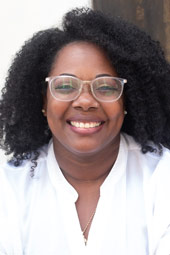
Shardé Chapman
Assistant Professor of Religious Studies
313-993-2007
chapmasn@udmercy.edu
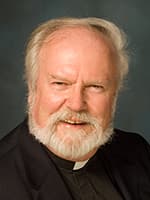
Si Hendry, S.J.
Director, Catholic Studies Program
313-578-0352
hendrysi@udmercy.edu

J. Todd Hibbard
Professor of Religious Studies
*
Chair of Religious Studies
313-993-1088
hibbarja@udmercy.edu

Hsiao-Lan Hu
Professor of Religious Studies
Director of the Women's & Gender Studies Program
313-578-0351
hhu@udmercy.edu

Justin J. Kelly, S.J.
Associate Professor of Religious Studies
313-993-1086
kellyjj@udmercy.edu
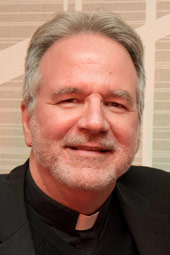
Patrick Kelly, S.J.
Associate Professor of Religious Studies
313-993-1132
kellypm@udmercy.edu
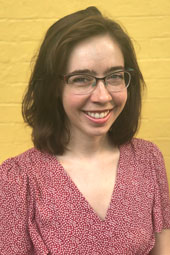
Katherine Merriman
Assistant Professor of Religious Studies
Director of the Islamic Studies Program
313-993-1962
merrimkr@udmercy.edu
Adjunct Instructors

James B Tubbs
Senior Adjunct Instructor
313-578-0355
tubbsjb@udmercy.edu

Michael Hovey
Senior Adjunct Instructor
313-268-0948
hoveymw@udmercy.edu
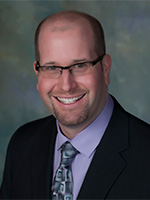
Jason Miller
Adjunct Professor
millerj12@udmercy.edu

Andrew Guffey
Instructor
guffeyar@udmercy.edu





